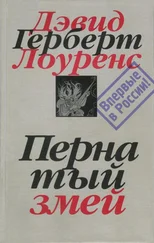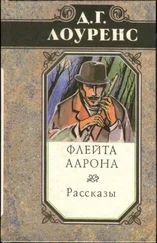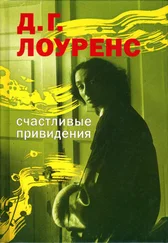Дэвид Лоуренс - Sons and Lovers
Здесь есть возможность читать онлайн «Дэвид Лоуренс - Sons and Lovers» весь текст электронной книги совершенно бесплатно (целиком полную версию без сокращений). В некоторых случаях можно слушать аудио, скачать через торрент в формате fb2 и присутствует краткое содержание. Жанр: Старинная литература, на английском языке. Описание произведения, (предисловие) а так же отзывы посетителей доступны на портале библиотеки ЛибКат.
- Название:Sons and Lovers
- Автор:
- Жанр:
- Год:неизвестен
- ISBN:нет данных
- Рейтинг книги:3 / 5. Голосов: 1
-
Избранное:Добавить в избранное
- Отзывы:
-
Ваша оценка:
- 60
- 1
- 2
- 3
- 4
- 5
Sons and Lovers: краткое содержание, описание и аннотация
Предлагаем к чтению аннотацию, описание, краткое содержание или предисловие (зависит от того, что написал сам автор книги «Sons and Lovers»). Если вы не нашли необходимую информацию о книге — напишите в комментариях, мы постараемся отыскать её.
Sons and Lovers — читать онлайн бесплатно полную книгу (весь текст) целиком
Ниже представлен текст книги, разбитый по страницам. Система сохранения места последней прочитанной страницы, позволяет с удобством читать онлайн бесплатно книгу «Sons and Lovers», без необходимости каждый раз заново искать на чём Вы остановились. Поставьте закладку, и сможете в любой момент перейти на страницу, на которой закончили чтение.
Интервал:
Закладка:
“And I don’t want her to eat,” he said, “and she knows it. When I ask her: ‘Shall you have anything’ she’s almost afraid to say ’Yes.’ ‘I’ll have a cup of Benger‘s,’ geshe says. ‘It’ll only keep your strength up,’ I said to her. ‘Yes’—and she almost cried—‘but there’s such a gnawing when I eat nothing, I can’t bear it.’ So I went and made her the food. It’s the cancer that gnaws like that at her. I wish she’d die!”
“Come!” said Clara roughly. “I’m going.”
He followed her down the darkness of the sands. He did not come to her. He seemed scarcely aware of her existence. And she was afraid of him, and disliked him.
In the same acute daze they went back to Nottingham. He was always busy, always doing something, always going from one to the other of his friends.
On the Monday he went to see Baxter Dawes. Listless and pale, the man rose to greet the other, clinging to his chair as he held out his hand.
“You shouldn’t get up,” said Paul.
Dawes sat down heavily, eyeing Morel with a sort of suspicion.
“Don’t you waste your time on me,” he said, “if you’ve owt better to do.”
“I wanted to come,” said Paul. “Here! I brought you some sweets.”
The invalid put them aside.
“It’s not been much of a week-end,” said Morel.
“How’s your mother?” asked the other.
“Hardly any different.”
“I thought she was perhaps worse, being as you didn’t come on Sunday.”
“I was at Skegness,” said Paul. “I wanted a change.”
The other looked at him with dark eyes. He seemed to be waiting, not quite daring to ask, trusting to be told.
“I went with Clara,” said Paul.
“I knew as much,” said Dawes quietly.
“It was an old promise,” said Paul.
“You have it your own way,” said Dawes.
This was the first time Clara had been definitely mentioned between them.
“Nay,” said Morel slowly; “she’s tired of me.”
Again Dawes looked at him.
“Since August she’s been getting tired of me,” Morel repeated.
The two men were very quiet together. Paul suggested a game of draughts. They played in silence.
“I s’ll go abroad when my mother’s dead,” said Paul.
“Abroad!” repeated Dawes.
“Yes; I don’t care what I do.”
They continued the game. Dawes was winning.
“I s’ll have to begin a new start of some sort,” said Paul; “and you as well, I suppose.”
He took one of Dawes’s pieces.
“I dunno where,” said the other.
“Things have to happen,” Morel said. “It’s no good doing any-thing—at least—no, I don’t know. Give me some toffee.”
The two men ate sweets, and began another game of draughts.
“What made that scar on your mouth?” asked Dawes.
Paul put his hand hastily to his lips, and looked over the garden.
“I had a bicycle accident,” he said.
Dawes’s hand trembled as he moved the piece.
“You shouldn’t ha’ laughed at me,” he said, very low.
“When?”
“That night on Woodborough Road, when you and her passed me—you with your hand on her shoulder.”
“I never laughed at you,” said Paul.
Dawes kept his fingers on the draught-piece.
“I never knew you were there till the very second when you passed,” said Morel.
“It was that as did me,” Dawes said, very low.
Paul took another sweet.
“I never laughed,” he said, “except as I’m always laughing.”
They finished the game.
That night Morel walked home from Nottingham, in order to have something to do. The furnaces flared in a red blotch over Bulwell; the black clouds were like a low ceiling. As he went along the ten miles of highroad, he felt as if he were walking out of life, between the black levels of the sky and the earth. But at the end was only the sick-room. If he walked and walked for ever, there was only that place to come to.
He was not tired when he got near home, or he did not know it. Across the field he could see the red firelight leaping in her bedroom window.
“When she’s dead,” he said to himself, “that fire will go out.”
He took off his boots quietly and crept upstairs. His mother’s door was wide open, because she slept alone still. The red fire-light dashed its glow on the landing. Soft as a shadow, he peeped in her doorway.
“Paul!” she murmured.
His heart seemed to break again. He went in and sat by the bed.
“How late you are!” she murmured.
“Not very,” he said.
“Why, what time is it?” The murmur came plaintive and helpless.
“It’s only just gone eleven.”
That was not true; it was nearly one o’clock.
“Oh!” she said; “I thought it was later.”
And he knew the unutterable misery of her nights that would not go.
“Can’t you sleep, my pigeon?” he said.
“No, I can’t,” she wailed.
“Never mind, Little!” he said crooning. “Never mind, my love. I’ll stop with you half an hour, my pigeon; then perhaps it will be better.”
And he sat by the bedside, slowly, rhythmically stroking her brows with his finger-tips, stroking her eyes shut, soothing her, holding her fingers in his free hand. They could hear the sleepers’ breathing in the other rooms.
“Now go to bed,” she murmured, lying quite still under his fingers and his love.
“Will you sleep?” he asked.
“Yes, I think so.”
“You feel better, my Little, don’t you?”
“Yes,” she said, like a fretful, half-soothed child.
Still the days and the weeks went by. He hardly ever went to see Clara now. But he wandered restlessly from one person to another for some help, and there was none anywhere. Miriam had written to him tenderly. He went to see her. Her heart was very sore when she saw him, white, gaunt, with his eyes dark and bewildered. Her pity came up, hurting her till she could not bear it.
“How is she?” she asked.
“The same—the same!” he said. “The doctor says she can’t last, but I know she will. She’ll be here at Christmas.”
Miriam shuddered. She drew him to her; she pressed him to her bosom; she kissed him and kissed him. He submitted, but it was torture. She could not kiss his agony. That remained alone and apart. She kissed his face, and roused his blood, while his soul was apart writhing with the agony of death. And she kissed him and fingered his body, till at last, feeling he would go mad, he got away from her. It was not that he wanted just then—not that. And she thought she had soothed him and done him good.
December came, and some snow. He stayed at home all the while now. They could not afford a nurse. Annie came to look after her mother; the parish nurse, whom they loved, came in morning and evening. Paul shared the nursing with Annie. Often, in the evenings, when friends were in the kitchen with them, they all laughed together and shook with laughter. It was reaction. Paul was so comical, Annie was so quaint. The whole party laughed till they cried, trying to subdue the sound. And Mrs. Morel, lying alone in the darkness heard them, and among her bitterness was a feeling of relief
Then Paul would go upstairs gingerly, guiltily, to see if she had heard.
“Shall I give you some milk?” he asked.
“A little,” she replied plaintively.
And he would put some water with it, so that it should not nourish her. Yet he loved her more than his own life.
She had morphia every night, and her heart got fitful. Annie slept beside her. Paul would go in in the early morning, when his sister got up. His mother was wasted and almost ashen in the morning with the morphia. Darker and darker grew her eyes, all pupil, with the torture. In the mornings the weariness and ache was too much to bear. Yet she could not—would not—weep, or even complain much.
Читать дальшеИнтервал:
Закладка:
Похожие книги на «Sons and Lovers»
Представляем Вашему вниманию похожие книги на «Sons and Lovers» списком для выбора. Мы отобрали схожую по названию и смыслу литературу в надежде предоставить читателям больше вариантов отыскать новые, интересные, ещё непрочитанные произведения.
Обсуждение, отзывы о книге «Sons and Lovers» и просто собственные мнения читателей. Оставьте ваши комментарии, напишите, что Вы думаете о произведении, его смысле или главных героях. Укажите что конкретно понравилось, а что нет, и почему Вы так считаете.









